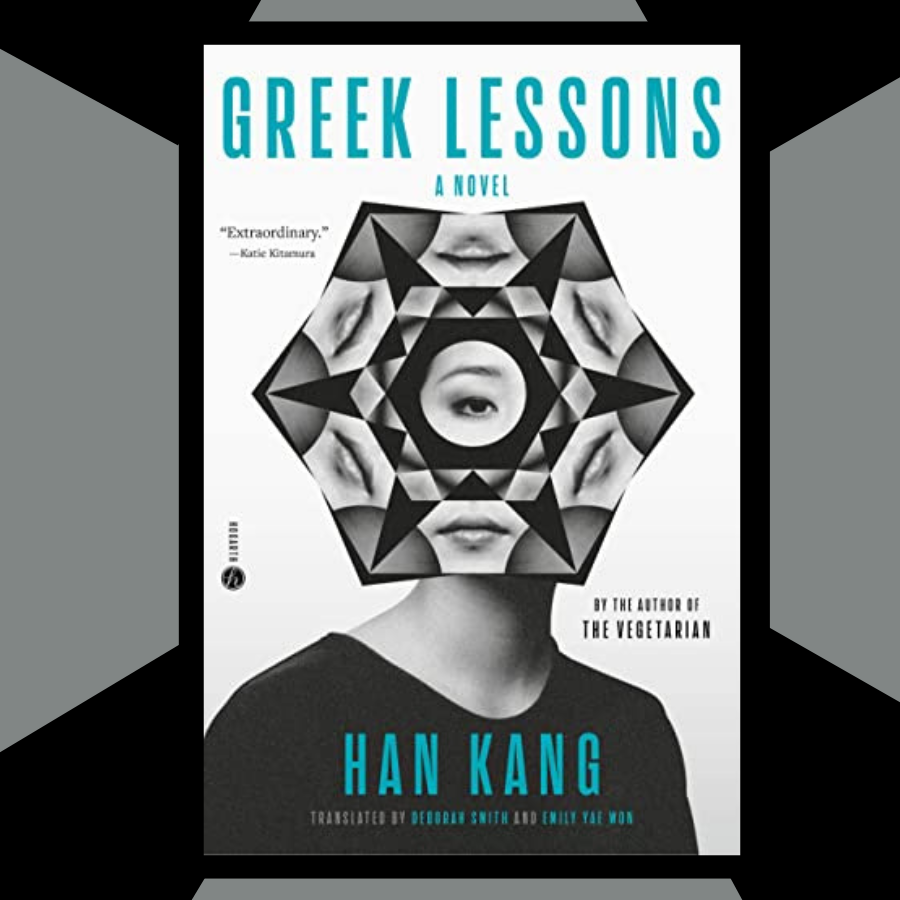This post may include affiliate links, which means we make a small commission on any sales. This commission helps Feminist Book Club pay our contributors, so thanks for supporting small, independent media!
As soon as I closed the cover of Greek Lessons by Han Kang, I opened it again. It is a short, quiet, sometimes devastating book that lends itself to rereading.
A woman has lost the ability to speak for the second time in her life, at a pivotal moment. She is grieving her mother and has lost custody of her son. His father threatens to move him far away and she cannot find the words or the strength to fight for him.
A man has been his losing sight all of his life, just as his father did before him. He has just the edges of it left and life is growing increasingly difficult and ever more lonely.
The two find just a hint of solace and, slowly, each other in Greek lessons. The man is a professor who has devoted his life to teaching the language. He recalls, “its complicated grammatical system–and the fact that it was a long-dead language–meant Greek felt to me like a safe, quiet room.”
For her, his student, there is the hope that learning a language will help hasten her return to speech, as French lessons did when she first lost the ability as a teenager.
The book alternates between the two narrators as they recall their pasts and encounter each other. The narrators are acutely–and often almost tragically–perceptive of the world around them, until it begins to blur and slip into the the unreal. The fragments and flashbacks and heaviness of the story reminded me at times of Lungfish by Megan Gilliss but, overall, this isn’t like anything I’ve read before. The words and sentences and images sometimes dissolve and shift into poetry, into metaphor, into dreams and nightmares, and again and again into images of snow.
Greek Lessons is about two long-suffering people who have become increasingly alienated from others, in part due to the limitations of their own bodies. Moving between their psyches feels claustrophobic at times as both of their worlds have grown small and remote. As readers, following them closely, we are also trapped in the bodies that seem to betray them.
The almost mythic quality of the story and the way it is interwoven with thoughts on Greek philosophy and linguistics could feel like an allegory. Instead, this closeness and Kang’s adept characterization–the way I felt like I knew the man and the woman from the inside out, how the woman’s voice was so clear even though she did not speak–made this book feel like something wholly different. It’s a kind of romance–albeit a strange, sad one. And it is a dense one, heavy with philosophy and ideas.
The man often references Plato’s theory of forms. Plato conjectures that there is another, better realm above this one–a world of ideas or forms that we cannot see. What we can see is only shadows of those more perfect, truer things. To me, there is somehow a sense that this man and woman who spend so much of their lives in darkness might be straddling the line between the realms. That they might be on the precipice of living in that better world together.
There is a pervading sadness throughout Greek Lessons, but there is also hope. It is their shared suffering that brings the man and the woman together. It is that dark world that might give them access to a lighter one. If Greek Lessons is mostly concerned with the sadness of the human body, it is the body that might allow its two narrators to embrace.

